35 Reasons You're Not a Millionaire

35 Reasons You're Not a Millionaire
Obstacles to millionairehood
We'd all love to be millionaires -- except those of us who are millionaires and would rather be billionaires, of course. It can be easy to assume that millionairehood is out of reach, but that's very often not the case. If you take certain steps, especially if you start early in life, millionairehood is surprisingly achievable.
The problem is that too many of us are doing too many things to ensure that we remain, at best, just thousandaires. Here's a look at a lot of reasons why many people aren't millionaires. See how many apply to you, and then see how many of them you can change in order to strengthen your financial security -- and maybe even achieve millionaire status.
Previous
Next

1. You've racked up a lot of debt
A big reason many people are not going to become millionaires anytime soon is because they're sitting on a mountain of debt. Carrying a lot of debt generally means you're paying a lot in interest instead of saving a lot for your future. Consider that in 2018, Americans forked over some $110 billion in interest to credit card companies.
If you owe $10,000 on your credit cards and you're being charged a not-unusual interest rate of 18%, you're looking at around $1,800 in annual interest charges. Many people owe $20,000 or $30,000 or more, and they'd be facing $3,600 or $5,400 or so. If your interest rate is more like 25% (also not a rarity, unfortunately), you might be paying $2,500 or $5,000 or $7,500 in interest alone each year!
Previous
Next
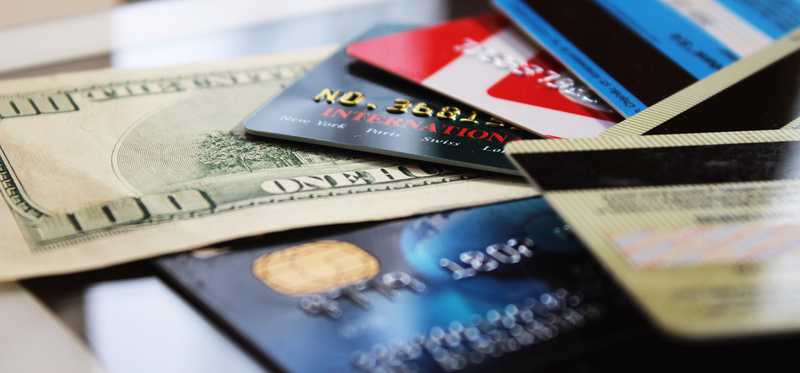
2. You're not smart with your credit cards
Another way to never reach millionairehood -- or to get there more slowly -- is to not be smart about credit cards. For starters, if you can't control your spending urges, leave the cards at home. If you can keep from overspending, then think about which cards will serve you best, and get and use those cards. For example, if you're still digging out from debt, you might look into balance-transfer cards that will give you a low interest rate (often 0%) for a long initial period.
If you're not saddled with significant debt, then you can aim to reap rewards (or good old cash) from your credit cards. Many offer 1% to 2% cash-back on purchases, and some offer much more than that when you spend in certain categories or at certain retailers. For example, you might earn 6% back on supermarket spending or 5% back when spending at Amazon.com. If you travel a lot, look into the best travel credit cards, as they offer hundreds of dollars in benefits and discounts, which can include free checked bags, access to airport lounges, and seat or room upgrades.
Previous
Next

3. You don't shop with coupons
If you're not shopping with coupons, you're spending more than you need to. Coupons at supermarkets can often save you several dollars per visit, which can amount to hundreds of dollars per year. Coupons in flyers that arrive in the mail will often get you big discounts at fast food locations, among other things.
Be sure to hunt for coupons online, too. You can very likely print out some coupons for stores that you're going to shop at -- and if you're shopping online, you can do a quick search for the retailer's name and the word "coupon" to get some codes to try at check-out that can give you 10% to 20% or more off, and/or free shipping.
Previous
Next

4. You make a lot of impulse purchases
Would you believe that the average American consumer spends $5,400 on impulse purchases annually? That's the finding of a slickdeals.net survey. It can seem too high to be true, but try breaking it down: It amounts to just $450 per month or $104 per week. A single last-minute dinner out at a nice restaurant can total $75 to $100.
Food is what 71% of respondents said they spend money on impulsively, followed by clothing, at 53%. Next time you're about to spend money on food or clothing or anything else, ask yourself whether you really need to or if you're just succumbing to a fleeting impulse. There's a good chance you can avoid making many of those purchases. If you avoid spending, say, $3,000, on impulse purchases each year, that money can be saved and invested, hurrying you toward millionairehood.
Previous
Next

5. You're not frugal
Many people who are millionaires are surprisingly frugal. It's a common trait in wealthy people, and to some degree, it helped many of them become wealthy. Billionaire Warren Buffett, for example, famously still lives in the same Omaha house he bought in 1958 for $31,500. Millionaire race car driver Danica Patrick cooks her own meals when traveling, while Utah Senator Mitt Romney bought his golf clubs at Kmart.
Do a quick self-assessment: Are you frugal? Do you go through your financial life trying to spend as little as possible on various items? Do you aim to keep your expenses low? Cultivate frugality in yourself, as it can help you amass wealth more quickly.
ALSO READ: 5 Smart Financial Moves I've Made
Previous
Next

6. You engage in retail therapy
There's a good chance that you indulge in retail therapy -- shopping in order to lift your mood -- because various surveys have found that more than half of Americans do so. It's easy to understand how it happens -- most of us are walking around with cash or credit cards on us, and the thought of suddenly having a new jacket or going to the movies to see anything that's playing with a big bucket of popcorn can be appealing, especially if we're feeling a bit low.
Retail therapy might make you feel a little better, but it will only hurt your net worth and slow your progress toward millionairehood. Fortunately, there are other ways to make yourself feel better. Two examples often recommended by therapists are exercise and volunteering. If you're just looking for the distraction that shopping provides, consider reading a book or watching a movie on TV -- or visiting friends.
Previous
Next

7. You don't have a plan and goals
One reason many people never make it to millionairedom is that they never really tried to get there. They never had a plan, a roadmap, or any specific goals. If you're serious about wanting to get rich, know that as long as retirement isn't around the corner, you can probably make yourself considerably wealthier -- but it will take some planning.
For starters, figure out how much money you want to amass -- perhaps by determining how much you'll need in retirement. Then start crunching numbers to see how much you'll need to sock away regularly in order to get there. After that, you might need to come up with ways to save more money. Don't be afraid to tap the services of a financial planner, either. You can find ones that are fee-only, not collecting commissions for selling you various products, at NAPFA.org.
Previous
Next

8. You didn't start saving and investing early
A major hindrance to getting really rich is if you start saving and investing relatively (or very) late in life. That's because time is a very powerful aid in getting wealthy: The more years your money can grow for you, the more you'll amass.
Consider, for example, that if you sock away $10,000 per year and earn an average annual rate of return of 8%, you'll end up with around $156,000 after 10 years, around $494,000 after 20 years, and $1.2 million after 30 years. Yes, it might be a shame if you get your wake-up call in your 40s, but don't despair -- you can still amass a lot of money if you're aggressive and disciplined about it.
Previous
Next
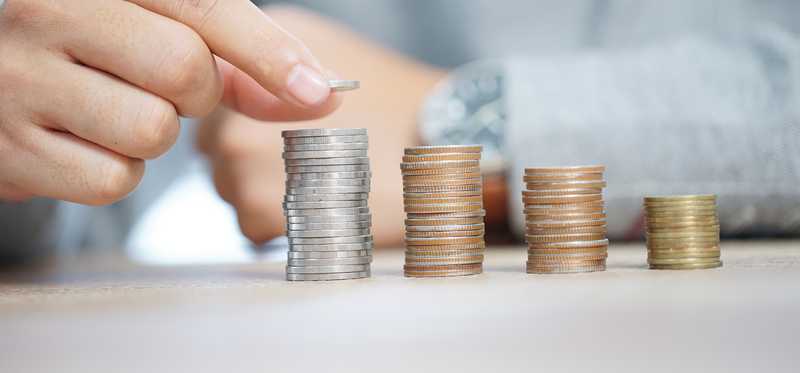
9. You haven't been saving much or regularly
While time is extremely helpful in accumulating wealth, the sums you sock away matter, too. Yes, it's great if you can pull together, say, $8,000 one year, but don't stop there or think that the next year you might just save and invest $5,000. You can make up for lost time by saving and investing extra-big sums. It helps a lot to do so regularly, and it can hurt less, too. The thought of saving and investing $12,000, for example, might be daunting, but remember that that's $1,000 per month. If you're a two-income middle-class household, that might be rather doable.
Aim to save and invest a lot, regularly, and for best results, try to increase your savings rate from year to year. You might, for example, move the money you get from most raises directly into your retirement fund, and you might do the same with any tax refunds you get.
Previous
Next
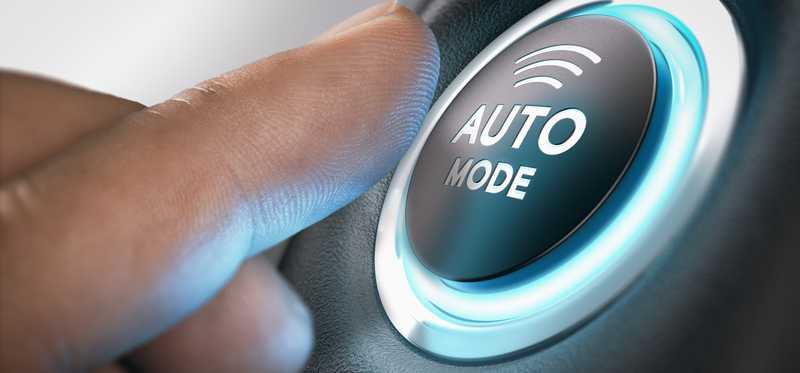
10. You're not automating your savings
Making your saving and investing automatic can make it more likely to happen. There are a bunch of ways to automate your finances: For starters, if your workplace offers a 401(k) plan, participate in it -- contributing at least enough to max out any available matching funds from your employer. Your employer might also let you send a portion of each paycheck directly into another savings or investing account. If your brokerage lets you automatically reinvest stock dividends, look into that, too -- or simply redeploy accumulated dividends into new stock holdings periodically instead of cashing them out.
While you're at it, you might have some bills paid automatically, too. That can ensure that you're not late with any payments and that your credit score doesn't end up hurt by that.
Previous
Next

11. You haven't been investing effectively
You might be socking away great chunks of money, but if you're only parking them in a low-interest-rate CD or bond, you're not going to build wealth very quickly. It's hard to beat the stock market for long-term growth, as the following data from Wharton Business School professor Jeremy Siegel shows. He calculated the average returns for stocks, bonds, bills, gold, and the dollar, between 1802 and 2012, and found that stocks averaged 8.1% growth annually, vs. 5.1% for bonds and 2.1% for gold.
If you want stock-market returns but don't want to invest a lot of time and effort becoming an ace stock analyst, you can simply invest in one or more low-fee broad-market index funds, such as one based on the S&P 500 index of 500 of America's biggest and best companies that will distribute your assets across 80% of the U.S. stock market. The SPDR S&P 500 ETF (SPY) is a solid option.
Previous
Next

12. You're impatient
Many of us are impatient, and that's not a helpful trait in investing. Impatient investors may sell their shares of a great stock just because it doesn't surge in value within a few weeks or months. Impatience also hurts us when we're sitting on a bunch of money to invest and haven't yet run across a compelling investment. In such situations, we may just plow our dollars into lesser opportunities, just because we want to be taking action.
Great investment thinker Joel Greenblatt has explained:
"The biggest challenge for investors is patience and that is in short supply. You used to get a quarterly statement and often throw it in the garbage; now you can check your stock price 30 times a minute. There’s a lot more data, a lot more ability to crunch numbers and compare people. That works against investors, and patience continues to be the hardest challenge. It always was, but now it is even worse."
Previous
Next

13. Your friends like to spend a lot of money
This reason why you're not a millionaire and probably not on track to become one may surprise you: Your friends. Think about it: Do your friends spend freely, seemingly not thinking about saving for the future? Do they like to go out with you frequently to nice restaurants or bars and or to sporting events and concerts? If so, then they're hurting your ability to save and invest.
You needn't ditch your friends, but you might try to redirect your socializing. Perhaps suggest getting together to watch movies on Netflix or play board games once a week or month. If you'd like to enjoy drinks together, you can do so much less expensively at each others' homes, with drinks bought at a liquor store or the supermarket.
ALSO READ: This Is What Americans Regret Spending Money on the Most
Previous
Next

14. Your spouse is not on the same financial page with you
If you're married, think a little about your partner and your relationship. Are you both on the same page financially? Do you talk about your financial goals and work together to reach them? If not, getting to millionairehood will be extra tough, because while one of you may be diligently saving, the other may be spending freely and perhaps even racking up disastrous credit card debt.
Many couples keep financial secrets from each other, such as various impulse purchases. Some even have separate secret accounts. Talk regularly with your partner about your finances, and come to an agreement about how you'll both save and spend. Having two people working together toward a goal can be much more powerful than one working alone.
Previous
Next
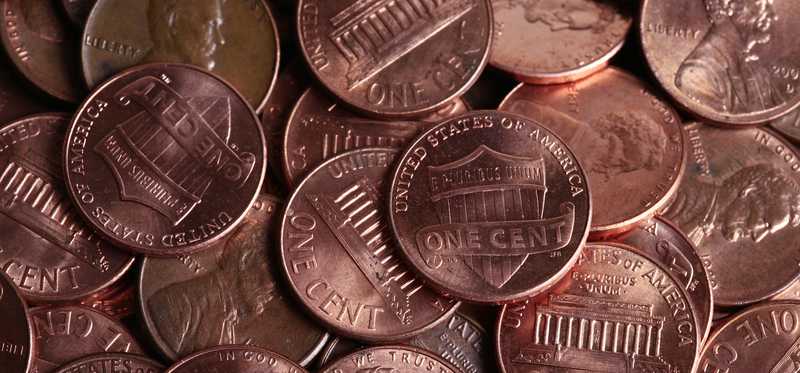
15. You've bought penny stocks
Are you putting any of your hard-earned dollars into penny stocks -- those trading for less than about $5 peer share? It can be easy to do so, particularly if you're a somewhat naïve or beginning investor. When shares are priced so low, it can seem like they're a bargain -- but that's not how it works. You need to relate a stock's share price to its earnings, among other things, in order to get a sense of its value. For example, a stock priced at $200 per share can be much more of a bargain and much more likely to double in value than one priced at $2.
Penny stocks are also alluring because you can buy so many shares for so little. For example, $2,000 can get you a thousand shares of a $2 stock but only 10 of a $200 stock. Again, though, remember that the latter move can be vastly smarter. Penny stocks are typically tied to unproven, small, often unprofitable companies, and they're notoriously easy for scammers to manipulate. Steer clear.
Previous
Next
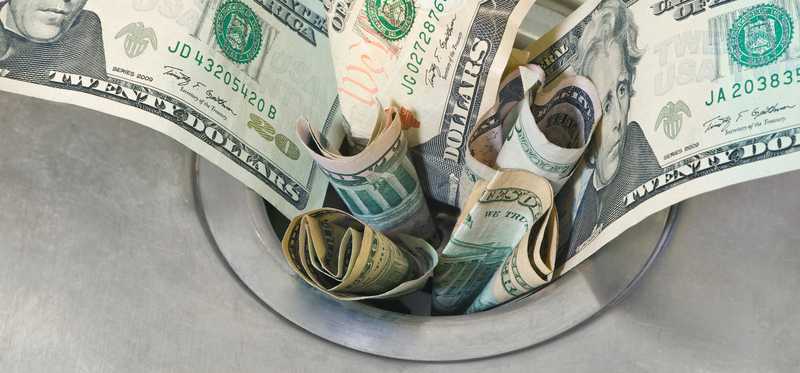
16. You've been day-trading
Are you buying shares of stocks, holding them for a few hours or days and then selling them, and repeating that process often? Well, then you're day trading -- which is an excellent way to get poorer instead of richer. Consider the words of my colleague Matt Frankel:
"Four university professors published a research report in May 2011 in which they analyzed long-term day traders’ success rates. They found that in any given year, only about 13% of day traders earn any profit. What’s more, less than 1% of day traders are consistently profitable year after year."
Previous
Next

17. You don't understand the risk-and-reward tradeoff
Investors need to understand that there's a risk-reward tradeoff to consider whenever you're looking to make money with your money. In general, low-risk investments offer low rewards. Bank savings accounts and CDs and government bonds, for example, tend to be quite safe -- but they usually won't offer great growth rates. That has certainly been the case for many years now, in our low-interest-rate environment. (There can be times when they're great for investors, though; in the 1980s, for example, interest rates were in the double-digits.)
Most long-term investors should be willing to take on some risk in exchange for the likelihood of greater rewards. The stock market will be more volatile and risky than a government bond, for example, but over long periods, it should outperform them significantly. There are risk-reward tradeoffs even within the world of stocks, with smaller, less proven companies able to grow more rapidly, while being less reliable than slower-growing, dividend-paying blue chip companies.
Previous
Next
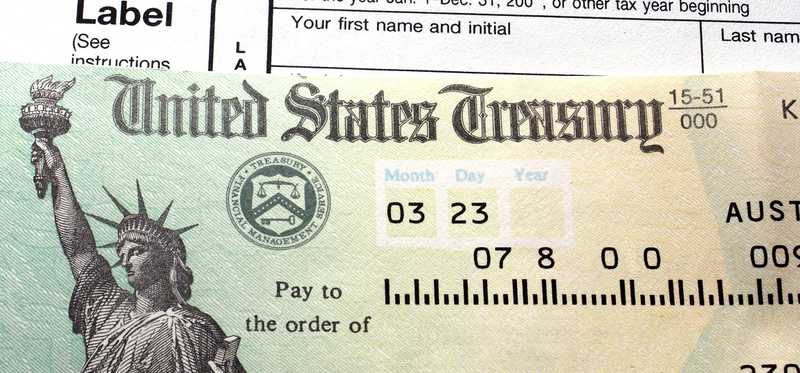
18. You spend every tax refund
The average 2019 tax refund was recently $3,608. That's a lot of money, and if invested, it could go a long way toward helping you reach millionairehood -- especially if you sock away most or all of the tax refunds you receive over the years. If you invest $3,068 annually for 20 years and earn an average annual return of 8%, you'll amass more than $151,000 -- just from your tax refunds! That alone will get you 15% of the way to millionairehood.
Note, though, that a big tax refund means that Uncle Sam has essentially been holding your money throughout the year and is only now returning it. Ideally, you might want to have a minimal tax refund, by adjusting the withholding from your paycheck or the estimated quarterly tax payments you make. Of course, if saving money for retirement is very hard for you, you might aim for hefty refunds, just because that money stays out of your paycheck that way and is harder to mis-spend.
ALSO READ: The 4 Best Ways to Use Your Tax Refund
Previous
Next
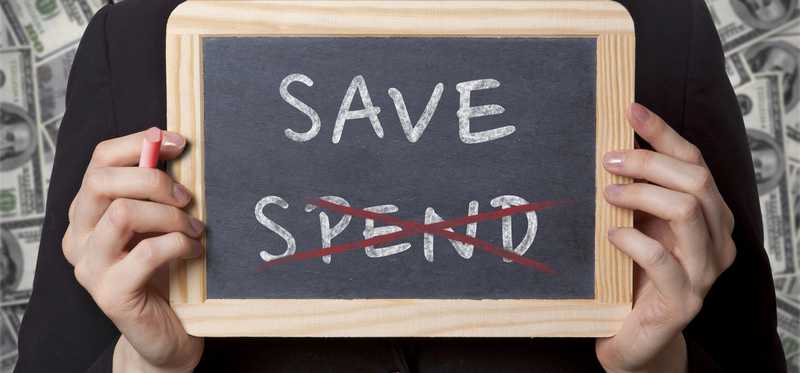
19. You increase your spending with every raise
If you're a salaried worker, you probably get regular raises -- often in the range of 3% to 5% annually. That may not seem like much -- it will bump up a $1,350 weekly paycheck by only around $40 to $67 -- but over time those sums add up. A 4% increase in a $75,000 salary amounts to an extra $3,000. These regular increases can have us feeling slightly richer every year, and therefore increasing our spending accordingly every year, but that's not your smartest move if you want to be a millionaire.
Try to bank those increases, instead. You may not be able to save and invest every raise -- after all, over 20 years that will have you trying to live on the salary you started with 20 years ago -- but the more you save, the faster your nest egg will grow.
Previous
Next

20. You're living above your means
Spend a few minutes thinking about your cash flow -- about how much money comes in and how much goes out and how much is left over for saving and investing. Many people spend so much that little to nothing is left over for that, which is why there's a sensible rule of thumb to "pay yourself first." If you aren't managing to have enough money to put toward your future financial security or, worse, if you're actually carrying credit card debt, then you're living above your means, when you should instead be living below it.
Consider the amount of money coming into your household and figure out how much you can really afford to spend on various discretionary expense categories such as eating out, travel, and gifts. Think about ways to rein in your spending, too. If you're driving a too-expensive car, you might downsize to a more financially appropriate one. If you're living in a house that's costing you an arm and a leg in mortgage payments, taxes, utilities, upkeep, and maybe even homeowner association fees, consider moving.
Previous
Next

21. You're very focused on upgrading your lifestyle
It's natural to assume that over time you deserve to have nicer and nicer things. That can have you looking for a significantly fancier car next time you need to buy a car, and it can have you looking at pricier homes, too, when it's time to move. Naturally, those are bad moves if you're struggling financially. But what if you actually can afford a fancy car and a fancy house? Well, that may be the case, but setting yourself up to have hefty mortgage payments and car payments, not to mention the other related expenses (such as repairs and taxes) that are also likely to be higher is going to slow your progress toward millionairehood. This is called "lifestyle creep" and it's to be avoided.
Remember that many millionaires became millionaires by staying in their same old house, by driving their same old car as long as they can, and by not looking like millionaires. In other words, they didn't focus much on upgrading their lifestyle and instead have been happy living like ordinary non-wealthy people even though they can afford to do otherwise.
Previous
Next

22. You waste a lot of time
This impediment to great wealth might surprise you: Wasting time. Do you spend most evenings just watching TV? On weekends, do you often end up wondering where the day went, as you got little done? At work, are many projects taking longer to get done than they should? Do you have to-do lists with many items that have been there for weeks or months? If any of that rings a bell, you're probably wasting more time than you should.
Most of us would do well to waste less time. If you spend less time on social media, for example, you might get more done at work and more done at home, too. Wasting less time can also make it more possible for you to tackle some tasks that can save you money or make you money -- such as calling around to get quotes for lower-priced insurance policies, researching companies or mutual funds in which you might invest, or just reading broadly and deeply, to make yourself a more informed and thoughtful investor. Many successful people find that waking up early helps them get more done in the day, too.
Previous
Next

23. You buy lottery tickets
As the old joke goes, lotteries are a tax on people who are not very good at math. After all, the odds of winning the Powerball jackpot, for example, are 1 in 292,201,338. That's almost like picking one random person in America out of its 325 million or so residents.
Remember that investing is all about the tradeoff between risk and reward, with some investment choices being very safe while offering little reward (think low-interest-rate bank accounts) and others offering more reward while being riskier (such as the stock market). Lotteries offer the greatest reward possible -- sometimes hundreds of millions of dollars -- but they also feature the greatest likelihood that you'll not get that reward.
Previous
Next

24. You have no emergency fund
If you have no emergency fund, your diligent work saving for retirement and trying to become a millionaire can end up derailed if a major unanticipated expense materializes -- or if your household suffers a job loss.
According to a 2017 Federal Reserve report, fully 44% of Americans surveyed didn't have ready funds to cover an unexpected $400 expense and would have to resort to borrowing money or selling something. It's not so unlikely a thing to happen, either: A 2015 report from the Pew Charitable Trusts found that fully 60% of American households "experienced a financial shock" over the previous year, with about a third of them experiencing two. The median cost of households' most expensive shock was $2,000, or about half a month of income. More than half of households had trouble making ends meet after experiencing their shock.
Protect yourself by keeping three to nine months' worth of living expenses (including food, housing, utilities, transportation, insurance, etc.) available in an emergency fund.
Previous
Next

25. You don't budget your money
If you're not budgeting, you probably don't have a good handle on where your money is going, and that means that you might be missing some holes you could plug up. Spend some time tracking all your spending over several months. You can do this by jotting down whenever you spend some cash, and by reviewing checking account records and credit card statements.
You might be surprised by how much you're spending in total on certain categories, such as dining at restaurants, and that can help spur you to make some money-saving changes. You might also find that you've been paying some things without even being aware of it -- perhaps, for example, you thought you canceled a gym membership, but it's still docking you $50 per month. Or maybe you forgot to cancel a certain subscription. Staying on top of your spending can help you reach your financial goals faster.
Previous
Next

26. You haven't been participating in your 401(k)
Not everyone has access to a 401(k) plan at their workplace, but if you do, you should be participating in it. A Pew Charitable Trust report found that only about half of millennials were participating in plans available to them, and only about three-quarters of workers overall were doing so.
The contribution limits for 401(k)s are generous -- $19,000 for 2019, with an extra $6,000 "catch-up" contribution allowed for those 50 or older, bringing their total to $25,000. That's far more than the $6,000 (plus a $1,000 catch-up contribution) allowed for IRAs in 2019. If you manage to sock away $15,000 annually for 20 years and it grows by an annual average of 8%, you'll end up with a rather hefty sum: around $741,000.
ALSO READ: 5 Steps to Maximize Your 401(k) in 2019
Previous
Next
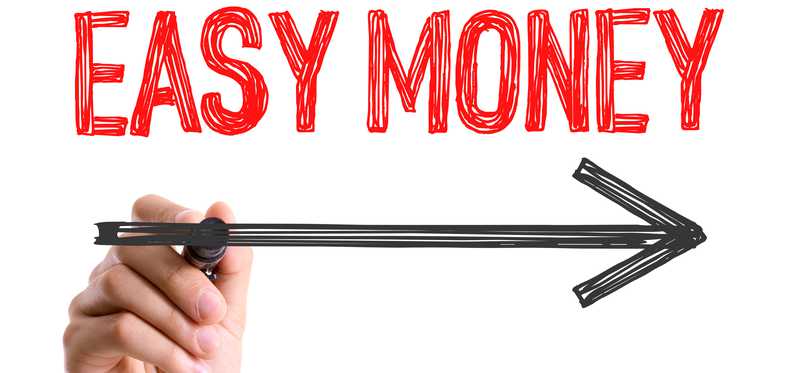
27. You've passed up free money from your employer
Another critical 401(k) mistake is not contributing enough to max out any available matching funds offered by the employer. About 20% of participants in plans fail to grab all matching dollars, and that's a shame -- because it's free money.
A typical match is 50% of worker contributions, up to 6% of their salary. So if you earn, say, $75,000 and contribute 6% of your pay to your 401(k), that will be $4,500 -- and your employer will kick in an additional $2,250. Here's how powerful that $2,250 is: If you invest $2,250 annually for 20 years and earn an average annual return of 8%, you'll end up with more than $111,000 -- and all that comes from free money. Maxing out available matching dollars can help you reach millionairehood faster.
Previous
Next

28. You've been borrowing from your 401(k)
Have you been borrowing from your 401(k) account? Unless it was utterly unavoidable, it was not a great thing to do. Any money you remove from your retirement savings accounts -- even if it's just for a few years -- will not be able to grow for you. Imagine, for example, taking $20,000 out of a 401(k) plan for just three years. Well, if you're 20 years from retirement now, that money when it's paid back will have only 17 years to grow until you retire.
That $20,000 will grow to around $74,000 over 17 years at, say, 8%. But if it were able to grow for the full 20 years, it would amount to about $93,000. That's a difference of almost $20,000!
Previous
Next

29. You've been cashing out your 401(k)s
Even worse than borrowing from a 401(k) is cashing it out, and that's what many millions of workers do every time they change a job. With many people staying only a few years at each job, their 401(k) accounts will never have a lot in them, so it's easy to think that cashing them out won't make much difference. But it will. Cash out a $25,000 account while you're still young and 25 years from retirement, and you'll lose out on the amount it would have grown to -- $171,000, if it grew at 8% annually.
Know that you can roll over a 401(k) into an IRA -- or possibly into your next employer's 401(k) plan. You may even be able to just leave it in that original 401(k) account, though you might start getting charged regular management fees on it.
Previous
Next

30. You've not been saving with an IRA
While IRAs don't permit annual contributions as sizable as those permitted for 401(k)s, they can still be powerful wealth-building aids. Better still, they're available to anyone with earned income (up to certain limits), so you don't need to have an employer offering you this kind of retirement account.
Contribution limits for 2019 are $6,000, plus an additional $1,000 for those 50 and older. That may not seem like a lot, but given enough time, even annual $6,000 investments can become significant sums. Growing at 8% annually, they'll become almost $500,000 over 25 years -- that's halfway to millionairehood, just from relatively modest IRA contributions. By the way -- if that money grew in a Roth IRA, it would all be available to you in retirement tax-free.
Previous
Next

31. You're not taking care of your health
One particularly interesting habit of millionaires is their attention to fitness. It's one worth adopting because it requires the same kind of discipline that comes in very handy when investing for the long term. That's not all, though: Being healthy can also mean that you get to enjoy an extra-long retirement, which means more years of fun, travel, and activities you enjoy. And if you're relatively healthy in retirement, you'll probably end up spending less on healthcare, which will help your nest egg to last longer.
Previous
Next
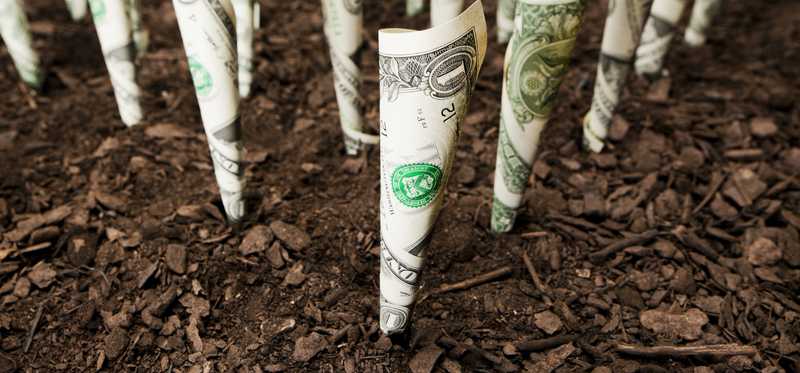
32. You only have one income stream
For best results when trying to accumulate a million dollars, aim to have multiple income streams -- i.e. not just your salary. You can accomplish this in various ways. You might have a part-time job for some years in order to bring in more money. You might also just generate additional income by making and selling things, or doing tutoring, or any of a number of other side gigs. Your stock investments can also provide an income stream, if you have a bunch of dividend payers in your portfolio. For example, $200,000 in dividend-paying stocks with an average dividend yield of 3% will kick out about $6,000 annually. (Ideally, reinvest that so that it can grow for you, too.)
If you're real-estate savvy, you might own a rental property and collect rental income -- but do your research first, because it's probably harder than you think to make a lot of money this way, as landlords have to deal with all kinds of expenses and headaches, such as taxes, insurance, repairs, tenant damage, and more.
Previous
Next

33. You're not asking for raises
Lots of workers ask for raises, so they give up the chance to be earning more -- and possibly a lot more. Don't be like that: Check to see how well paid you are relative to others in similar positions. Resources for that include salary.com, glassdoor.com, salaryexpert.com, indeed.com, and the Department of Labor's Occupational Outlook Handbook. Think about how productive and valuable you are to your employer, too. Figure out what you should be earning and ask for it, because -- get this -- most people who ask for a raise actually get one!
Previous
Next

34. You're not changing jobs regularly
Various studies have shown that job-hopping, versus staying with the same employer for many years, pays off. Workers get the biggest increases in their salary when they've been at their job for at least two years but not more than five years, according to a report from the human resource management company Automatic Data Processing, which studied data related to some 24 million workers. Those under age 25 got the biggest pay hikes, averaging 11%, when changing jobs. Meanwhile, annual pay increases were an average of 48% higher for those who switched jobs, according to data from the Federal Reserve Bank of Atlanta.
ALSO READ: More Workers Are Quitting Their Jobs for Flexibility
Previous
Next

35. You're not reading and learning all the time
Finally, a good way to get to millionairehood faster is to read a lot. Tom Corley, who has studied millionaires and their habits for more than a decade, notes that, "85% [of millionaires surveyed] read two or more books every month… But these millionaires don’t read just any old books. They read books that will help them grow and learn." It's not just business books, either. He cited books on history, health, current events, psychology, science, leadership, self-help, biographies, careers, and much more.
Billionaire Warren Buffett would agree, having advised business students (and others) to: "Read 500 pages… every day… That’s how knowledge works. It builds up, like compound interest. All of you can do it, but I guarantee not many of you will do it."
John Mackey, CEO of Whole Foods Market, an Amazon subsidiary, is a member of The Motley Fool’s board of directors. Selena Maranjian owns shares of Amazon and Netflix. The Motley Fool owns shares of and recommends Amazon and Netflix. The Motley Fool has a disclosure policy.
Previous
Next
Invest Smarter with The Motley Fool
Join Over Half a Million Premium Members Receiving…
- New Stock Picks Each Month
- Detailed Analysis of Companies
- Model Portfolios
- Live Streaming During Market Hours
- And Much More
READ MORE
HOW THE MOTLEY FOOL CAN HELP YOU
-
Premium Investing Guidance
Market beating stocks from our award-winning service
-
The Daily Upside Newsletter
Investment news and high-quality insights delivered straight to your inbox
-
Get Started Investing
You can do it. Successful investing in just a few steps
-
Win at Retirement
Secrets and strategies for the post-work life you want.
-
Find a Broker
Find the right brokerage account for you.
-
Listen to our Podcasts
Hear our experts take on stocks, the market, and how to invest.
Premium Investing Services
Invest better with The Motley Fool. Get stock recommendations, portfolio guidance, and more from The Motley Fool's premium services.